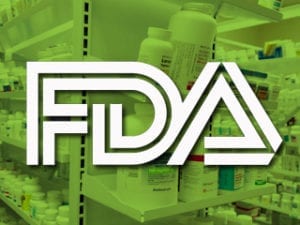FDA Tough Talk to a Tough Industry — Drug & Medical Device Makers
 The U.S. Food and Drug Administration (FDA) wants to remind the public what a good job it’s been doing in monitoring drugs both before and after they are marketed.
The U.S. Food and Drug Administration (FDA) wants to remind the public what a good job it’s been doing in monitoring drugs both before and after they are marketed.
In a report issued over the weekend, April 21, “Advances in FDA’s Safety Program for Marketed Drugs,” the agency pats itself on the back, specifically its Center for Drug Evaluation and Research (CDER), in reviewing the actions it has taken in recent years to “enhance quality, accountability, and timeliness of its post-market drug safety decisions.”
The context is important here – Congress is getting ready to approve the latest version of the Prescription Drug User Fee Act (PDUFA), a companion to the medical device version (MDUFA), which will establish their budget for the next five years. The current budget is set to expire September 30.
Critics love to jump on the FDA for a less-than-get-tough attitude toward the pharmaceutical industry. Janet Woodcock, who heads the CDER bragged to a group of healthcare journalists that this report will tell the other side of the story.
Among the findings:
- The agency has required 385 post-market studies since 2008.
- New safety information forced drug makers to change the labels on drugs 65 times.
- In 2011, the CDER issued 68 drug safety communications, up from 39 in 2010.
- Staff members at the CDER’s Office of Surveillance and Epidemiology rose to 245 this year from 123 in 2007.
- The FDA staff noted that the diabetes drugs Januvia and Janumet, sold by Merck, were declared misbranded because Merck did not submit its required post-marketing study concerning pancreatitis.
- Through its Safe Use Initiative, which establishes partnerships to reduce preventable drug harm, the over prescription of anti-psychotics to the elderly with dementia has been identified and claims submitted to the Centers for Medicare and Medicaid Services (CMS) are being reviewed to determine if the drugs caused preventable harm.
All of this is moving in the direction of a healthy FDA – one that is in charge of Big Pharma rather than the other way around. However, it is impossible for the FDA to serve two masters and so far the drug and medical device industries have won.
Who can forget the Vioxx incident? The painkiller, made by Merck & Co took five years to be pulled from the market. If the agency had any authority, we would not have seen what is estimated to be more than 27,000 heart attacks and sudden cardiac deaths among Vioxx users.
It was after Vioxx that Congress finally gave the FDA some teeth, allowing it to order label changes and conduct safety trials even if the drug company was unwilling. As far back as 2006, the Institute of Medicine found the FDA needed to do more work in the public interest to keep us safe from medications.
When an expert panel was convened last September to look at the issue of synthetic surgical mesh used on women to treat pelvic organ prolapse and incontinence, the panel suggested mesh be reclassified high-risk, Class III. The FDA has yet to act, even though its own data showed a five-fold increase in complications. Meanwhile the procedures continue at a rate of thousands a year and the complications are devastating women with life-altering injuries that leave them disabled and in chronic pain.
Whether we like it or not, prescription medications and medical devices are here to stay and we need to trust the profit-driven companies that deliver them. But we can’t. A recent Consumers Report survey found more than 80 percent of the public expect the FDA to protect the public not be an errand boy or job creator for industry as some in Congress shamelessly suggest.
The agency will win points with the public and save countless lives if it reminds industry who is in charge, no matter how much that could hurt financially. Many of our clients who have been hurt by medical devices and dangerous drugs will be waiting to see just how brave the FDA really is in standing up to the industry it is supposed to regulate.
It’s about time; in fact it’s long overdue.
Share This


